|
In the land of minority stories being told by those who don’t know the struggle, “Pose” smashed the narrative. The show made history by not only creating storylines that truly expressed the lives of the LGBTQ community, but by creating a diverse cast, including the largest transgender cast to appear on television. As the series prepares for its third and final season, the creators, cast and crew, during a press conference, reflected on the filming of the final season and the overall experience of taking part in something that has changed so many lives. We had the opportunity to ask the cast if they were encouraged to offer input in development of their character or storyline. 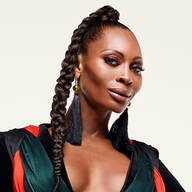 DOMINIQUE JACKSON, “Elektra” Immigrant, Black, woman, trans. Never been on set, right? Other sets, but not sets that celebrated me or validated me or acknowledged me. And to walk on to that set of "Pose" and to hear Mr. Murphy go -- say, "Is that how it's done?" that was -- it was validation in itself. When Steven says, "Listen, I've been a part of this" -- and it was so amazing to sit back, because as I am ballroom and as I get to sit back and watch as everything happens around me, I see the passion, the compassion, the care, the want to know that it's being done right. When you have directors like Steven and Janet, and even though Janet is one of us and is us, the beauty of her saying, the validation of her saying, "Listen, is this right?" when Steven says, “I don't know about this," the consultants that were brought in -- Twiggy, Leiomy, all of them -- this was not a place, for me personally, where I felt -- and being a part of ballroom, being ballroom, I didn't have to say anything. Only when we had that last scene with the -- going into the 42nd Street and Elektra coming back into show world, that was the only time I had to walk on set and really say, "No. We were not sleazy. We were not degenerate. We were not" -- "we were fetishes that were loved, and we brought the best even in the worst of times." So, all of it, it was amazing. So, to have all of that, yeah. 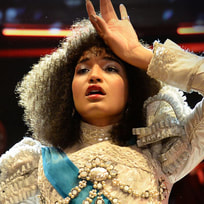 INDYA MOORE, “Angel” Steven and Janet Mock particularly, as a Black trans woman in the writers' room, it was perfect. I think that there were so many different parts of this story we're all telling and using our own lives to make a reality, details from our own experiences and lives. And I think that Janet did that brilliantly and beautifully, and Steven did that brilliantly and beautifully. And we were all able to relate and see ourselves in the lives of these characters so respectfully because of the way that the writers' room was organized so intentionally and the people who sat in it and, you know, who had the focus and centering on our characters. Their lives and the parts of their experiences that they used came so closely and reflective to ours and is just a true reflection of what the experience is to be trans or queer, that I can't remember a time where I ever felt like I needed to say, "Hey, this doesn't feel right." And Janet and Steven frequently came to us and checked in with us about the content and made sure that things felt right and were congruent and felt natural for us. But I think that that dynamic of the writers' room and the producers checking in with the actors to make sure that the story is being told right, that wasn't even a thing that needed to happen on this set. I think that that is something that's really important. When you have trans and queer characters on a show and you want to tell the story truthfully and you don't have writers who are a reflection -- who aren’t reflections of those experiences can be really difficult to nail right. So I would hope that in those circumstances, in the case where we don't have people who reflect us in a writers' room and who are the creators of our show, that they would check in on us, check in with us to make sure that they're telling the stories right and that they don't believe they can get it all right in their own minds, because they don't have the experience to come up with the imagination to tell that story. So, I think that the way that Steven and Janet put the story together was brilliant. And I think that that is the mechanism of the writers checking in and asking the actors, that is something that feels so necessary for productions where the writers and the creators aren't trans or queer. Like, that level of cross-talk. But here we're all together. We're all reflections of each other, creating. So, we don't navigate -- we're not navigating those same challenges. We're not navigating those challenges in that kind of way on our set in getting our story told truthfully. 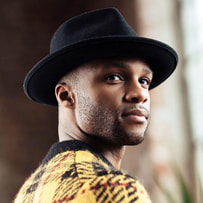 DYLLÓN BURNSIDE, “Ricky” I distinctly remember on my first day of filming not having, like, an idea about who Ricky was, where he came from, and what was, sort of, the idea around who he would become on the show. And I asked Steven those questions. Like, who do you think he is? Is there any insight you can give me as to how to play him? And Steven looked at me point-blank and said, who do you think he is? Where do you think he comes from? Where do you think he should go? And that kind of collaboration and open line of communication was there from day one and has existed throughout filming all three seasons. And I think that -- that instance speaks directly to what Indya's talking about. It's like this -- this -- we were a reflection of each other, and we allowed each other to speak to each other in a way that breathed life into these characters authentically. 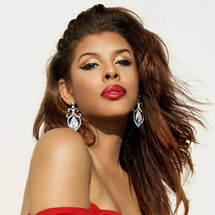 HAILIE SAHAR, “Lulu” Steven and I first season had a conversation. I would meet him during lunch break and say, "Hey, Steven. Can I talk to you?" And I would say, “You know, Lulu has obtained all this information. She's second in command to Elektra, ambitious and intellectual. I don't think she would just want to be in this house forever.” And that's when that conversation happened. And I guess they went into the writers' room and something came out of that, because then Ferocity was also born. But I remember speaking to Steven and him allowing me to have that space to tell him how I felt about Lulu. And then, Janet, the brilliant, iconic Janet being of trans experience and a woman of color just effortlessly creating these characters and really, truly being authentic was just the icing on the cake. And that was my experience. 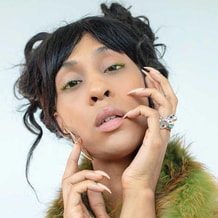 MJ RODRIGUEZ, “Blanca” So, I had been a part of the industry at a very young age, and what came with that was me feeling like I had to be limited in what I had to say and how I had to speak or if I had even opportunity to speak up. So, I was always this closed-off person. But with being involved in the industry, there was, I guess, this grooming that came with me. And I was naturally just afraid to ask questions. I was just the person, the girl to show up and just do the job. And I guess that most actors and actresses -- I'm sure I can say for all of my friends here that we usually do that. But I never had an opportunity like this on a television and film -- a television show where I got to actually have the range that I never thought I could have in the other productions or the other things that I was involved in. I think that's what the best thing for me was, is that I was able to have the liberty to speak even when I was afraid to speak. I had the liberty to delve into the character like how I wanted to and not be questioned, but still have small notes here and there. "Well, how about you speak it here, MJ?" Or, "How about you do this?" Or, "No, this is how it needs to be done." And sometimes that's what you need in order for you to fulfill the journey of the character that you're creating or the process that you want to put into the character. And I never had the -- the outspokenness. I never was able to speak up like how I was able to speak up in this show. And it's taught me a lot from first season until third season. I feel like not only did Blanca have an evolution, but I, Michaela, Mj Rodriguez had as evolution too. She's learned a lot. I mean, she's always been able to learn, but with these two, and also with Ryan Murphy, there was a great space to just quickly learn and really appreciate it while being able to be free in what you do naturally, which is the craft. So, I thank them tremendously for opening that space for me. Because now, moving forward, I feel like I'll be able to do that in any other project I go into. So, I thank for them that, and I think that's -- for me specifically, that's what opened me up in feeling like this is the place I feel comfortable in. This is what I want more of and I hope to go into more. Look for the full article coverage in PRIDE & Equality magazine this June and a review of season three in New Mexico Entertainment Magazine. The final season of Pose begins on May 2nd on FX.
0 Comments
Leave a Reply. |
P&E - After PrintHere are some of the latest articles and topics in the GLBT community. Archives
June 2024
Categories |

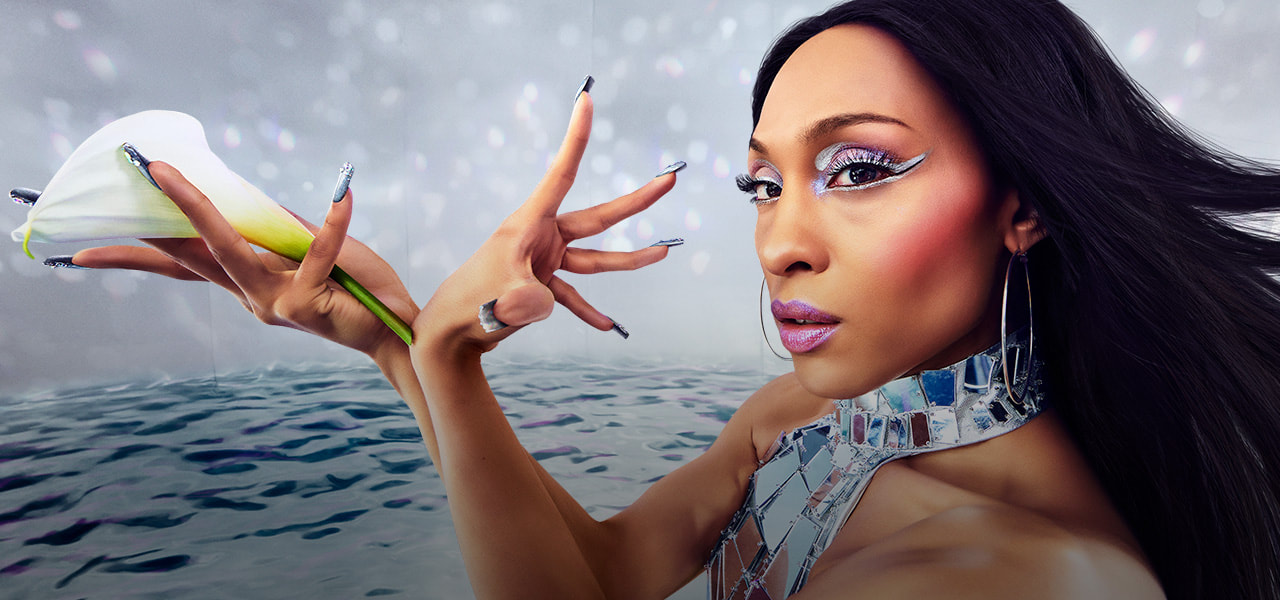
 RSS Feed
RSS Feed
